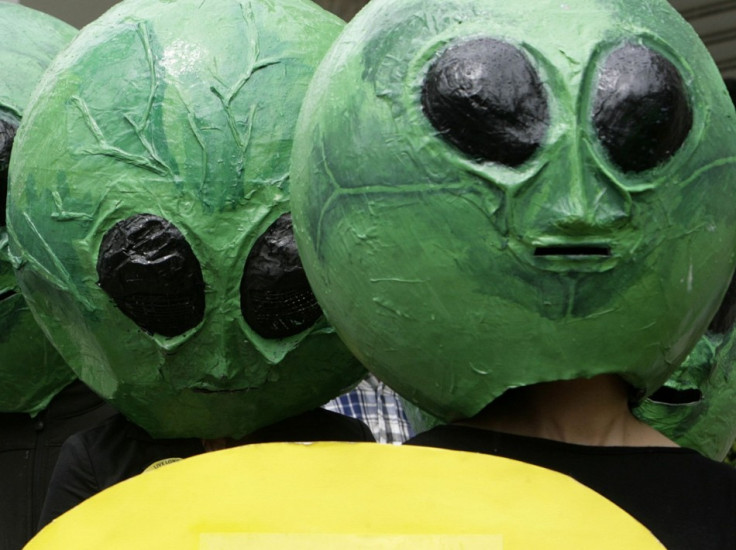Mars Attack: The 100 Year Starship Symposium and When Jesus Meets the Aliens

While many welcome the prospect of making contact with intelligent aliens, theologians worry about the implications, leading Christian thinkers to ask at the 100 Year Starship Symposium if Jesus also died for the salvation of aliens.
According to Weidemann, a professor at the Ruhr-University Bochum, the death of Christ, some 2,000 years ago, was designed to save all creation, leading the scientists to ask 'Did Jesus die for Klingons too?'
The problem opposing theologians to scientists often concerns the events leading to the creation of forms of life but Weidemann, a self-described Protestant Christian, suggested some possible solutions.
While sacred books explain god has created humans, for scientists, the whole creation includes 125billion galaxies with hundreds of billions of stars in each galaxy.
Weidemann however insists religion and science can be reconciled and instead say we should try to understand why has Jesus chosen earth and why has he abandoned other forms of life in other galaxies.
Being even more provocative, Weidemann insisted it could also have been because humans were the only race who had sinned and thus required 'saving.'
"If there are extra-terrestrial intelligent beings at all, it is safe to assume that most of them are sinners too," Weidemann said. "If so, did Jesus save them too? My position is no. If so, our position among intelligent beings in the universe would be very exceptional."
As the scientific and religious theories continue to clash, Weiderman hinted at the fact that another point that should be raised is that if intelligent life exists on other planets, then Jesus or God would have to have visited them too, and sacrificed himself equally for Martian-kind as well as mankind.
However, calculations made by the professor, based on guessing how many civilizations we think exist in the universe, and how long planets and civilizations are expected to survive, God's incarnations would have had to be in about 250 places simultaneously at any given time, assuming each incarnation took about 30 years, Weiderman said.
However, this theory risk being very controversial even among Christians as God is assumed to have taken on corporeal form as Jesus, making the idea that god multiplied itself difficult to reconcile with.
While professor Weidemann's speech is set to be seen as controversial, the 100 Year Starship Symposium is considered as a serious event.
It is sponsored by U.S. defence department Darpa (Defense Advanced Research Projects Agency), and is designed to help enhance the discussion of issues surrounding long-distance space travel.
The conference is an off-shoot of the 100 Year Starship programme, which seeks to inspire a new space race by merging areas of science, mathematics, engineering, biology, economics and the social sciences.
© Copyright IBTimes 2024. All rights reserved.






















